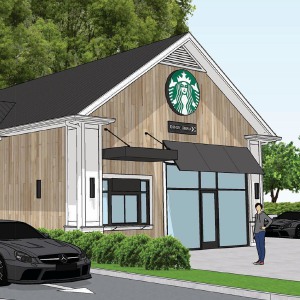Plan to bring Valley Regional Hospital into Dartmouth Health system raises questions
| Published: 09-10-2022 10:51 PM |
CLAREMONT — Valley Regional Hospital is one of just five hospitals in New Hampshire that are not yet a part of larger health systems, but that may be about to change.
Late last month, Claremont’s Valley Regional announced it had signed a letter of intent with Dartmouth Health and with Windsor’s Mt. Ascutney Hospital and Health Center, another member of the DH system.
As outlined in the letter, Valley Regional would join the Lebanon-based system, which is the state’s largest private employer, and be jointly managed by the current CEO of Mt. Ascutney Dr. Joseph Perras. Valley Regional interim CEO Dr. Jocelyn Caple would serve as chief medical officer of both hospitals, while Mt. Ascutney CFO David Sanville would serve in that role for both organizations.
The two small hospitals would have “largely mirror” boards, including as many as five representatives from each of the three organizations.
On Thursday night, the hospitals’ leaders held a public listening session at the Claremont Savings Bank on Broad Street in Claremont to make their case.
“I like to say that Valley Regional Hospital is small but mighty,” Caple said during Thursday’s session, which was attended by about 50 people, many of whom are employed by one of the health care organizations. But, she said, the hospital, which has 21 staffed beds and 350 employees, can’t do it alone. It already relies on partnerships to provide specialty care in the Sullivan County city of some 13,000, a region where she said “the population is flat and somewhat decreasing.”
Consolidation in rural health care is necessary for small hospitals to survive, said Caple, who previously led Frisbie Memorial Hospital in Rochester, N.H., during its sale to a for-profit chain.
“Being an independent rural hospital is really, really hard,” she said, noting that nationally in the past 10 years more than 136 rural hospitals have closed. She said she applauds Valley Regional’s board for being proactive in seeking out a partner.
Article continues after...
Yesterday's Most Read Articles
 Kenyon: Dartmouth alumni join union-busting effort
Kenyon: Dartmouth alumni join union-busting effort
 Hartford voters approve school budget and building repair bond
Hartford voters approve school budget and building repair bond
 Starbucks store planned for Route 120 at Centerra
Starbucks store planned for Route 120 at Centerra
 Local Roundup: Hanover pitcher throws a perfect game
Local Roundup: Hanover pitcher throws a perfect game
 Parker up for parole more than 2 decades after Dartmouth professor stabbing deaths
Parker up for parole more than 2 decades after Dartmouth professor stabbing deaths
DH is the right partner, she said, because in rural areas, “geography is destiny.”
The letter of intent, signed in December, describes “a long and broad history of collaboration” between Valley Regional and DH. DH provides cardiology, oncology, pathology and radiology services at Valley Regional. Valley Regional belongs to the New England Alliance for Health, a shared-services organization that is part of the DH system. Valley Regional and Mt. Ascutney also have collaborated in areas such as rehabilitation and laboratory management services.
The new relationship, if finalized, will allow for “tighter integration” of clinical, administrative and financial resources with the aim of achieving operational efficiencies to sustain “cost-effective, high-quality clinical services in their rural communities.”
Should the transaction move forward, which will require regulatory approval from the attorneys general of both states, Valley Regional will become the fourth community access hospital to come under the DH umbrella. In addition to Mt. Ascutney, the system also includes Alice Peck Day Memorial Hospital in Lebanon and New London Hospital, as well as the larger Cheshire Medical Center in Keene and Visiting Nurse and Hospice for Vermont and New Hampshire.
Just a few other Upper Valley hospitals will remain independent: Gifford Medical Center in Randolph; Cottage Hospital in Woodsville; and Springfield (Vt.) Hospital.
Leaders of the small hospitals that have already joined the DH system credit their membership with helping them weather the COVID-19 pandemic, enabling them to offer specialty services closer to home, and allowing better communication between providers at different institutions through a shared medical record.
“The benefits of affiliating with Dartmouth-Hitchcock Medical Center (DHMC) boosted the services we were able to offer, meaning the population we serve could access the same world-class care at NLH in specialties like Dermatology and Oncology — without the burden of driving 30 miles away,” Tom Manion, New London Hospital’s CEO, said in a recent community newsletter. “In the past few years, the benefits expanded beyond services to include merging onto the same electronic medical record platform, which reinforced a seamless continuity of care systemwide for our patients.”
Dr. Sue Mooney, Alice Peck Day’s CEO, also pointed to the shared medical record as a “total game-changer for how we care for patients,” noting that providers no longer have to chase down records from other hospitals. Hospitals in the DH system have standardized their lab equipment so that they all have the same reference ranges so there’s no need to redo tests when a patient goes from one hospital to another, Mooney said.
Given its proximity to DHMC, APD also shares professional staff, including hospitalists and emergency department physicians, with the academic medical center.
“As a result of that we’ve seen just an ability to care for a larger volume of sicker patients,” Mooney said. “That’s really been a benefit to the community. That’s been, I think, the biggest transformation.”
Annually, before the affiliation, APD saw about 6,300 emergency department visits, whereas now that’s up to 9,000, Mooney said. Inpatient stays are also up from an average of 15 patients per day to 17 now. In addition, the operating rooms, CT scan and Magnetic Resonance Imaging machine are all doing more work than before.
Everything’s a little busier,” Mooney said.
By allowing more and sicker patients to receive care outside of the 396-bed DHMC, it helps reduce pressure on the academic medical center, which is often full.
“If every single small rural hospital had to start decreasing services or closing doors, (we) could not accommodate them at one academic medical center in Lebanon,” Dr. Joanne Conroy, DH’s CEO, said during Thursday’s listening session.
Perras said that Mt. Ascutney joined the DH system in 2014 when it was in “pretty dire straits.”
While Perras said DH “didn’t come down with bags of money to save us,” it did provide the expertise and resources Mt. Ascutney needed “to get us to a better place.”
Claremont resident Bernie Folta, a retiree who stood using a walker and said he has recently been a patient at all three hospitals relevant to Thursday’s discussion, peppered the hospital leaders with questions.
He said, and hospital officials confirmed, that Valley Regional owns a stake in Summercrest Senior Living Community in Newport and that will need to be discussed as part of the affiliation. He also noted that a loan Valley Regional received in 2017 from the U.S. Department of Agriculture, which allowed the hospital to restructure its long-term debt incurred during a 2010 renovation and expansion, will also need to be part of the affiliation talks.
“This is a big deal,” Folta said. “There’s a lot of little things to wonder about.”
Still, in an interview after the session, Folta said he understands the pressure that Valley Regional is under these days.
Of the affiliation, Folta said, “I think it’s inevitable.”
In addition to the Twin States’ attorneys general, the affiliation will need approval by boards of the three organizations.
For now, the organizations each are doing their own due diligence or, as Caple put it, “making sure we want to really be wedded to each other.”
Nora Doyle-Burr can be reached at ndoyleburr@vnews.com or 603-727-3213.

 Football helmet maker buys Lebanon’s Simbex
Football helmet maker buys Lebanon’s Simbex
